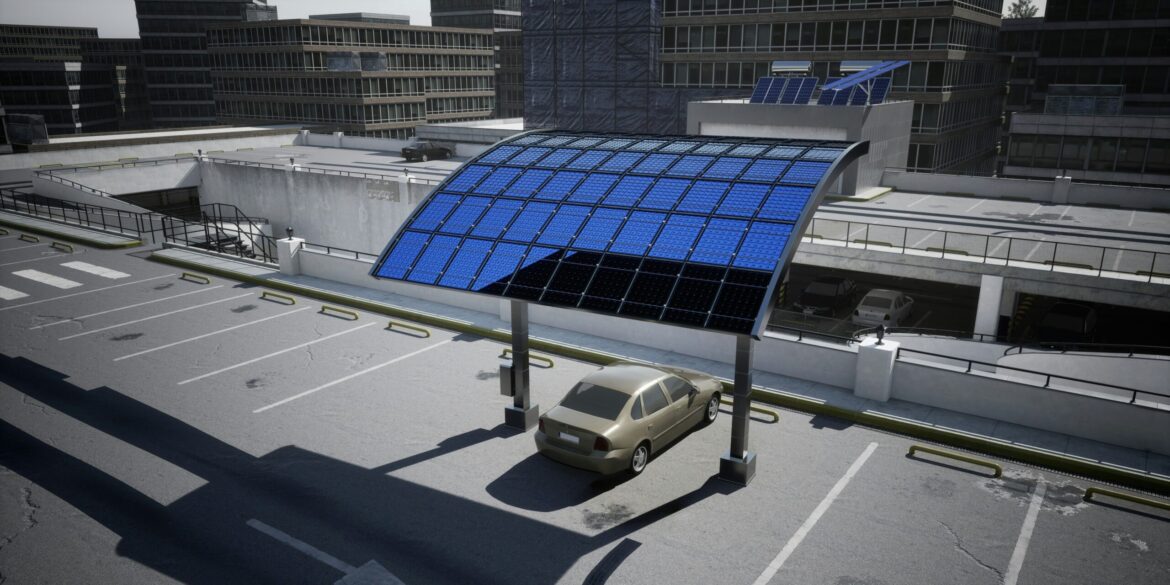In a bold move to merge transportation innovation with clean energy, the Minneapolis–Saint Paul Metro Transit system on June 21, 2025, launched a pilot program featuring five hybrid electric buses supported by rooftop solar infrastructure. The initiative aims to test how solar energy harvested at transit hubs can supplement electric vehicle operations, marking a significant stride toward decentralized energy use in public transit.
The pilot program, developed in coordination with the Metropolitan Council, involves the installation of solar canopies at major layover points across the Twin Cities. These solar arrays will feed power directly into auxiliary charging systems, helping to reduce both the electric grid load and overall diesel dependence. According to city officials, initial models predict a 10% reduction in net daily emissions per bus, translating to annual carbon savings of roughly 15 tons per vehicle.
“This is about decentralized energy—using sunlight where people gather most,” said Kim Nguyen, the city’s sustainability director, at a press event unveiling the project. Nguyen emphasized that beyond emissions reductions, the effort symbolizes the city’s broader push for visible, community-integrated climate solutions.
The timing of the rollout comes on the heels of a significant Supreme Court ruling in Diamond Alternative Energy, LLC v. EPA, which reaffirmed the federal government’s ability to support state-level clean energy initiatives such as zero-emission vehicle (ZEV) mandates. That legal backing has encouraged local governments across the country to take more aggressive steps toward sustainability, knowing that federal regulatory frameworks are likely to remain stable.
The solar-powered transit hub concept is not just environmentally promising—it is also fiscally strategic. By producing energy on-site, the program reduces reliance on fluctuating utility costs, especially during peak demand periods. While the solar systems aren’t designed to fully power the buses, they do provide enough supplemental energy to support climate control, interior lighting, and partial battery recharging during non-operating hours.
Amanda Lopez, a regular commuter on the Route 21 corridor, expressed cautious optimism. “Seeing solar panels here gives hope,” she said. “It’s a visible sign that climate solutions can start locally. I want my kids to ride a bus that doesn’t pollute their future.”
If the pilot proves successful, Metro Transit plans to expand the model across all 150 buses in its fleet by 2028. The city has also opened channels for collaboration with peer transit agencies in Milwaukee and Chicago, which are observing the project closely as they consider similar green transit upgrades.
Local transit officials highlight that this is not Minneapolis–Saint Paul’s first foray into sustainable mobility. The region already operates a mix of electric and hybrid vehicles, and it was among the first in the Midwest to introduce hydrogen fuel cell buses in limited use. The current solar initiative is part of a broader goal to achieve net-zero transit emissions by 2040.
“Transit hubs are prime real estate for solar installations,” said Marcus Ellison, Metro Transit’s lead engineer on the pilot project. “They’re static, sun-exposed, and centrally located—ideal conditions for clean energy production.”
Critically, the project also includes a community engagement component. Transit authorities are working with local high schools and community colleges to develop educational programs about renewable energy and green transportation. Workshops and interactive signage at participating transit stations aim to increase public understanding and support.
Funding for the pilot was secured through a combination of municipal green bonds, state environmental grants, and a Department of Transportation clean transit innovation award. While initial costs for the pilot are estimated at $3.2 million, officials project long-term savings in fuel, maintenance, and grid costs could offset expenses within a decade.
The move aligns with a broader regional trend as Midwest cities increasingly seek to lead on climate action. As climate impacts such as heatwaves, air quality deterioration, and flooding intensify, city leaders are prioritizing initiatives that demonstrate tangible, localized responses to global challenges.
By investing in solar-backed hybrid transit, Minneapolis–Saint Paul is not only reducing its carbon footprint—it’s also proving that climate solutions can be both functional and forward-looking. The pilot offers a replicable model for other urban centers exploring sustainable transit options, and if expanded, could transform the region into a national leader in renewable-powered public transportation.

